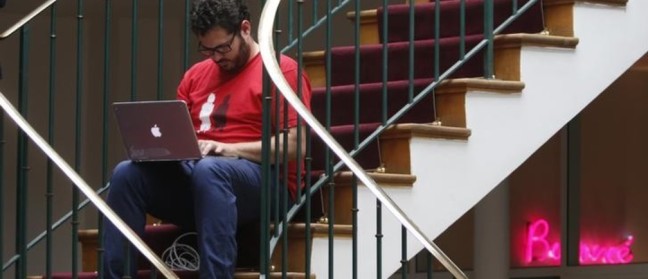
America is going to see some huge employment shifts in the next decade, as in past decades, thanks above all to technology.
The biggest losers? Bookkeeping, accounting, and auditing clerks, whose ranks are projected to shrink by 149,000 from 2014 to 2024.
We pulled the 12 jobs with the largest total declines in Bureau of Labor Statistics projections (see our past coverage for largest percent declines). Keep scrolling to see who’s losing the future.
- Computer programmers
They write and test code that allows computer applications and software programs to function properly. Their jobs are at risk primarily because of global outsourcing.
Median annual pay: $80,000
US employment in 2014: 329,000
Projected US employment in 2024: 302,000
Projected decline: 27,000 (8%)
- Molding, coremaking, and casting machine setters, operators, and tenders, metal and plastic
They set up or operate metal or plastic molding, casting, or coremaking machines to mold or cast metal or thermoplastic parts or products. Their jobs are at risk as companies switch to computer and robot-controlled machines.
Median annual pay: $29,000
US employment in 2014: 130,000
Projected US employment in 2024: 97,000
Projected decline: 32,000 (25%)
- Switchboard operators, including answering service
They operate telephone business systems equipment or switchboards to relay incoming, outgoing, and interoffice calls. Their jobs are at risk due to increased automation and online services.
Median annual pay: $27,000
US employment in 2014: 112,000
Projected US employment in 2024: 76,000
Projected decline: 37,000 (33%)
- Cutting, punching, and press machine setters, operators, and tenders, metal and plastic
They set up or operate machines to saw, cut, shear, notch, bend, or straighten metal or plastic materials. Their jobs are at risk as companies switch to computer and robot-controlled machines.
Median annual pay: $31,000
US employment in 2014: 192,000
Projected US employment in 2024: 153,000
Projected decline: 40,000 (21%)
- Postal service mail sorters, processors, and processing machine operators
They prepare incoming and outgoing mail for distribution at post offices and mail processing centers. Their jobs are at risk due to automatic mail sorting technology and the switch to online services.
Median annual pay: $57,000
US employment in 2014: 118,000
Projected US employment in 2024: 78,000
Projected decline: 40,000 (34%)
- Tellers
They are responsible for accurately processing routine transactions at a bank. Their jobs are at risk due to the rise of online banking and mobile apps.
Median annual pay: $26,000
US employment in 2014: 521,000
Projected US employment in 2024: 481,000
Projected decline: 40,000 (8%)
- Sewing machine operators
They operate or tend sewing machines to join, reinforce, decorate, or perform related sewing operations in the manufacture of garment or nongarment products. Their jobs are at risk due to increased automation and outsourcing.
Median annual pay: $23,000
US employment in 2014: 154,000
Projected US employment in 2024: 112,000
Projected decline: 42,000 (27%)
- Farmworkers and laborers, crop, nursery, and greenhouse
They perform numerous tasks related to growing and harvesting grains, fruits, vegetables, nuts, and other crops. Their jobs are at risk as farms consolidate and adopt technology that raises output per farmer.
Median annual pay: $20,000
US employment in 2014: 470,000
Projected US employment in 2024: 427,000
Projected decline: 43,000 (9%)
- Executive secretaries and executive administrative assistants
They perform clerical and administrative duties. Their jobs are at risk as technology automates or simplifies much of their work.
Median annual pay: $53,000
US employment in 2014: 777,000
Projected US employment in 2024: 732,000
Projected decline: 45,000 (6%)
- Postal service mail carriers
They deliver mail to homes and businesses in cities, towns, and rural areas. Their jobs are at risk due to automated sorting technology and the switch to online services.
Median annual pay: $58,000
US employment in 2014: 297,000
Projected US employment in 2024: 219,000
Projected decline: 78,000 (26%)
- Cooks, fast food
They prepare a limited selection of menu items in fast-food restaurants. Their jobs are at risk due to increased automation.
Median annual pay: $19,000
US employment in 2014: 524,000
Projected US employment in 2024: 444,000
Projected decline: 80,000 (15%)
- Bookkeeping, accounting, and auditing clerks
They record financial transactions, update statements, and check financial records for accuracy. Their jobs are at risk because of technological changes that automate and otherwise simplify this work.
Median annual pay: $37,000
US employment in 2014: 1,760,000
Projected US employment in 2024: 1,612,000
Projected decline: 149,000 (8%)

 Valley. He is former Vice-President at Forrester Research, a leading US-based technology research and consulting firm. At Forrester, he investigated how globalised innovation – with the rise of India and China as both a source and market for innovations – is driving new market structures and organizational models called « Global Innovation Networks ». During his tenure at Forrester, he advised senior executives around the world on technology-enabled best practices to drive collaborative innovation, global supply chain integration, and proactive customer service. He served as the Executive Director of the Centre for India & Global Business at Judge Business School, University of Cambridge, where Jaideep Prabhu was the director.
Valley. He is former Vice-President at Forrester Research, a leading US-based technology research and consulting firm. At Forrester, he investigated how globalised innovation – with the rise of India and China as both a source and market for innovations – is driving new market structures and organizational models called « Global Innovation Networks ». During his tenure at Forrester, he advised senior executives around the world on technology-enabled best practices to drive collaborative innovation, global supply chain integration, and proactive customer service. He served as the Executive Director of the Centre for India & Global Business at Judge Business School, University of Cambridge, where Jaideep Prabhu was the director.